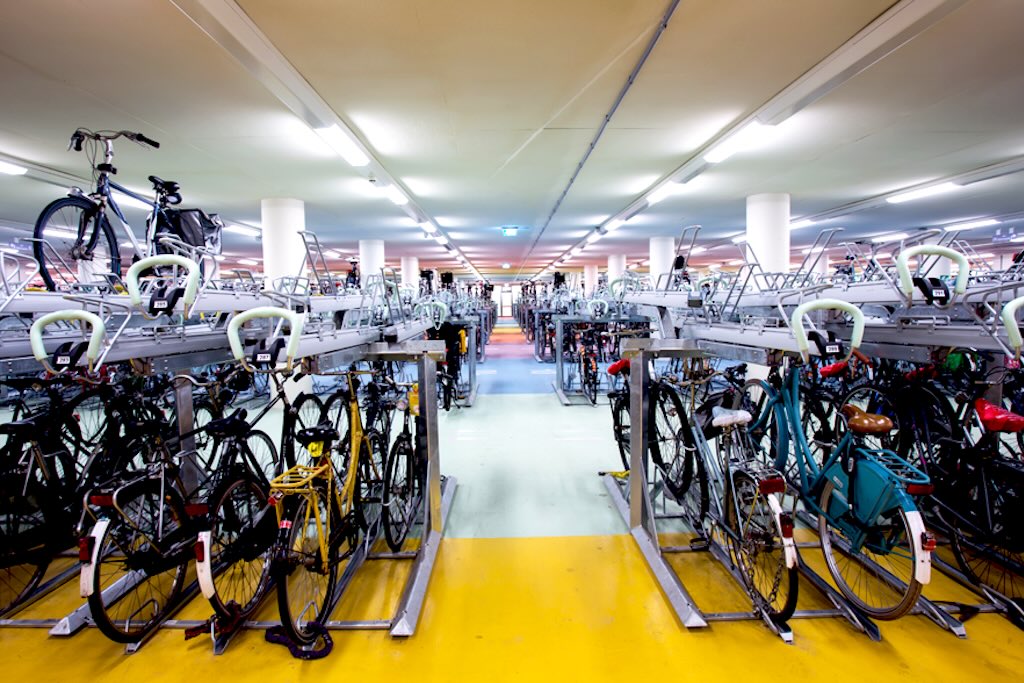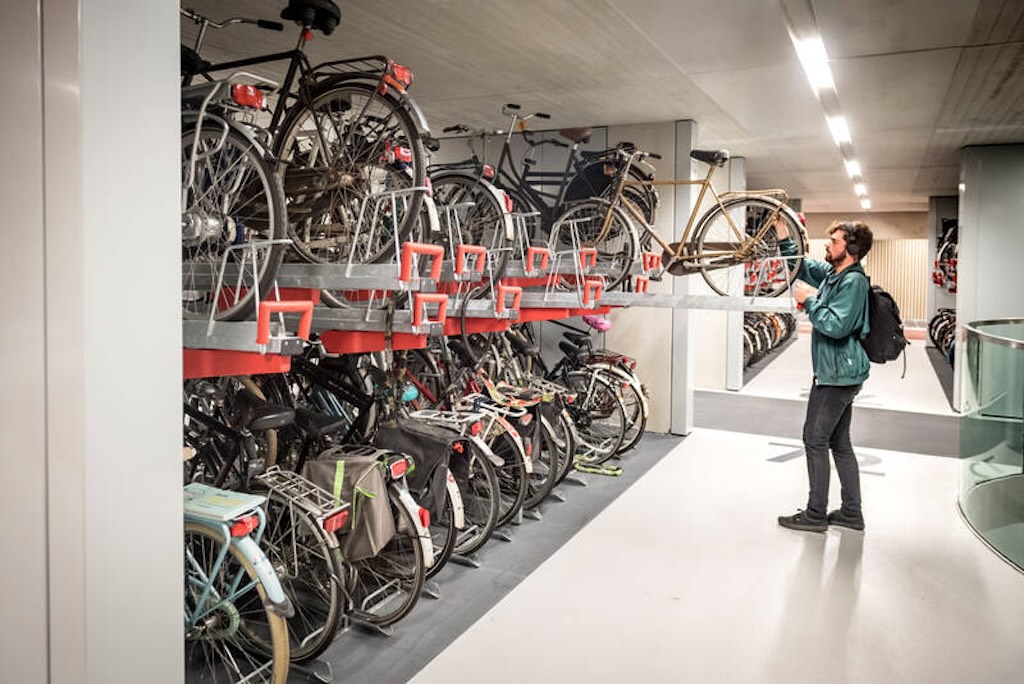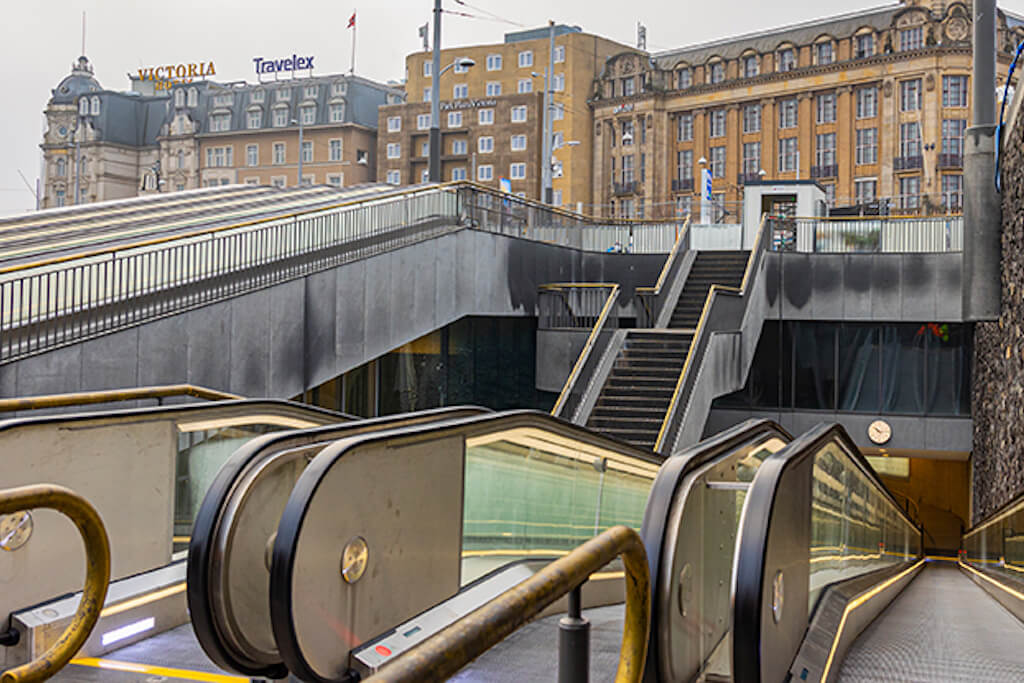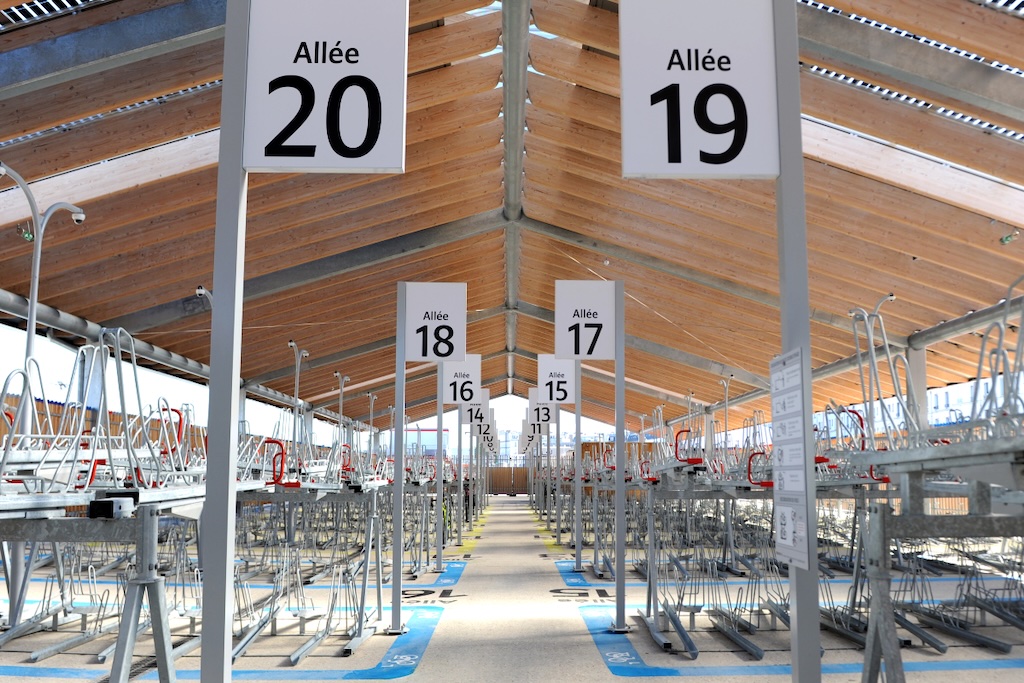Autumn Gear Guide
Find inspiration in our Gear Guide that will keep you out on your bike through wind or rain.
Download NowIn a world that’s increasingly turning to bicycles as an eco-friendly, efficient mode of transport, secure bicycle parking has become one of the most important factors in creating truly bike-friendly cities. As more people choose to bicycle to work, and into the city, at least for part of the journey, accessible parking in key urban […]
In a world that’s increasingly turning to bicycles as an eco-friendly, efficient mode of transport, secure bicycle parking has become one of the most important factors in creating truly bike-friendly cities. As more people choose to bicycle to work, and into the city, at least for part of the journey, accessible parking in key urban areas—especially near transportation hubs like train and subway stations—has never been more critical. For cycling to be a feasible option in a modern city, it needs to be integrated with other modes of public transport, allowing commuters to switch seamlessly from bike to train, tram, or bus.
It’s not just about building bike lanes; cities need to provide secure, well-designed places where cyclists can park their bikes with confidence, knowing they will be safe and accessible when they return. In transportation hubs, where bicycles are often the first or last mile of a commuter’s journey, this becomes even more crucial. The best bicycle parking garages go beyond simple storage—they serve as key parts of a larger urban mobility ecosystem, helping to reduce car dependency, alleviate congestion, and create more sustainable, livable cities.
According to a 2019 University of Leeds study, “Bicycle parking supply and quality appears to be a determinant of cycling for current and potential cyclists.”
But, while massive bicycle parking facilities exist and are starting to expand in Europe, the entire concept has yet to cross the proverbial pond. Until that happens, and people start to commute by a combination of train and bike, it will be hard to match the incredible number of bicycle commuters we see in cities like Amsterdam.
Here are some of the most impressive and innovative bike parking facilities around the world (well, mostly Europe), where cycling infrastructure is evolving to meet the needs of modern commuters.
Rotterdam’s Fietsenstalling is one of the largest and most advanced bike parking facilities in the world. Situated near Rotterdam Central Station, this multi-story garage is capable of holding almost 6,000 bikes. With automated bike racks and ample room for both standard and electric bikes, it’s an example of how cycling infrastructure can scale in a city that sees cycling as an essential part of its urban mobility.
What stands out about the Rotterdam station is its seamless integration with Rotterdam’s public transport network. Cyclists can easily park their bikes and access the train station in a matter of minutes. The garage also offers plenty of bike repair stations, lockers, and rental services, making it a true hub for bike commuters. It’s not just a parking garage; it’s a model of how cities can make cycling as convenient and easy as other modes of transport.

Bicycle Parking at Rotterdam Central station (photo: Velopa.com)
In Japan, the ECO Cycle system represents a groundbreaking solution to urban bicycle parking, combining technology, sustainability, and efficiency. Developed by Giken in 2013, ECO Cycle is an automated underground bicycle parking system designed to address the common problems associated with traditional bike parking, such as space congestion, theft, and exposure to the elements. With over 50 installations across Japan and plans for global expansion, ECO Cycle utilizes Giken’s innovative press-in technology, enabling it to be installed in tight urban spaces where land acquisition is difficult. The system is fully automated and computer-controlled, ensuring quick, secure storage of bicycles. Once a cyclist pushes their bike to the entrance, it is automatically stored underground in a designated space, with each bike secured using a personal IC tag to prevent theft.
One of the standout features of the ECO Cycle system is its efficiency, with an average storage and retrieval time of just 13 seconds—ideal for fast-paced urban environments. The entire process is streamlined: after inserting the front wheel into the system’s clamp, cyclists simply press a button to begin the automated storage process. Bikes are safely stored underground, protected from weather damage and theft, while the system’s earthquake-resistant design ensures added security. Beyond just saving space, the system is also environmentally friendly, incorporating smart technologies that optimize land use and reduce urban clutter. With its fast operation and high security, ECO Cycle is helping Tokyo and other Japanese cities lead the way in creating high-tech, eco-friendly infrastructure for the growing number of cyclists.

Tokyo Eco-Cycle bike parking
The bicycle parking facility in Utrecht stands as a striking example of modern design and functionality, earning its title as the world’s largest bicycle garage with a capacity for 12,500 bikes. Situated beneath the train station forecourt, this vast facility redefines what a parking structure can be. With its honeycomb steel roof and 49 integrated foil cushions, the design fosters a unique connection between the underground space and the open sky. The thoughtful architecture includes trumpet-shaped concrete supports, which not only serve a structural purpose but also contribute to the building’s aesthetic appeal. The parking garage feels more like an inviting public space than a functional utility, showcasing how transportation infrastructure can enhance the urban environment.
What truly sets the Utrecht bicycle parking facility apart is its emphasis on user experience and atmosphere. Unlike conventional parking garages, which often feel cold and unwelcoming, this facility is bright, airy, and designed with safety and comfort in mind.

Utrecht bicycle parking
Amsterdam, the global cycling capital, has taken bike parking to new heights—quite literally—by opening the world’s first underwater bicycle parking garage at Centraal Station. This ambitious project, which began in 2019 and opened in 2023, is a testament to the city’s dedication to integrating cycling with public transport. The garage can currently hold 6,300 bicycles, with plans to expand to 11,000 when a second garage opens.
The garage is a marvel of engineering, built underwater to free up valuable space above ground. The structure is designed with functionality and security in mind, using automated systems and easy access for cyclists. The entrance is marked by a large digital sign that indicates the number of available parking spots, and an automatic rolling walkway transports cyclists from the surface to the submerged garage below. The garage is accessible 24/7 and offers free parking for the first 24 hours, after which a small fee is charged.
While Amsterdam’s underwater garage is undoubtedly a feat of modern design, it’s not without its limitations. For instance, there is currently no designated parking for bulky cargo bikes, and there are no charging points for electric bikes, despite the growing popularity of e-bikes in the Netherlands. Still, this innovative project represents a bold step forward in transforming urban spaces to prioritize bikes over cars.

An entrance to Amsterdam underwater garage
Paris has made a huge leap toward becoming a truly bicycle-friendly city with the opening of a massive new bike parking facility at Gare du Nord. Situated beneath the station, one of the busiest in Europe, this facility offers 1,186 secure spaces for bikes, including spots for electric bikes and cargo bikes. It’s a critical part of the city’s broader Horizon 2024 project, which aims to make Paris a top destination for cyclists ahead of the 2024 Olympics.
The new facility addresses the growing demand for bike parking in Paris, where cycling is on the rise but infrastructure has historically lagged behind other major European cities. The facility includes illuminated indicators, numbered aisles, and a state-of-the-art security system to ensure bikes are parked safely. Cyclists who hold a Navigo pass or Imagine R card can park for free, while others can pay a very affordable €2 per day. The garage is also designed with sustainability in mind, with a roof covered by solar panels and a rainwater harvesting system to maintain green spaces nearby.
As Paris continues to invest in bike lanes, parking, and other infrastructure, this new facility at Gare du Nord serves as a model for other cities looking to promote cycling as a viable alternative to car travel. It’s a crucial step in creating a city where cycling is not just a hobby but a primary mode of transportation for residents and visitors alike.

Parking Gare du Nord Paris
As cities around the world continue to innovate in their approach to urban mobility, bicycle parking garages are evolving from basic facilities into sophisticated hubs that cater to the growing needs of cyclists. Whether it’s Rotterdam’s automated racks, Tokyo’s robotic bike retrieval systems, or Amsterdam’s underwater parking garage, these cutting-edge facilities are setting the stage for a more sustainable, bike-friendly future.
In cities where cycling is already a way of life, these parking garages serve as a symbol of how far we’ve come—and a reminder of how much further we can go in creating cities that work for people, not cars. For cyclists around the world, these garages offer a glimpse of a future where the bicycle is no longer an afterthought, but a central piece of urban life.
Find inspiration in our Gear Guide that will keep you out on your bike through wind or rain.
Download Now
Leave a comment